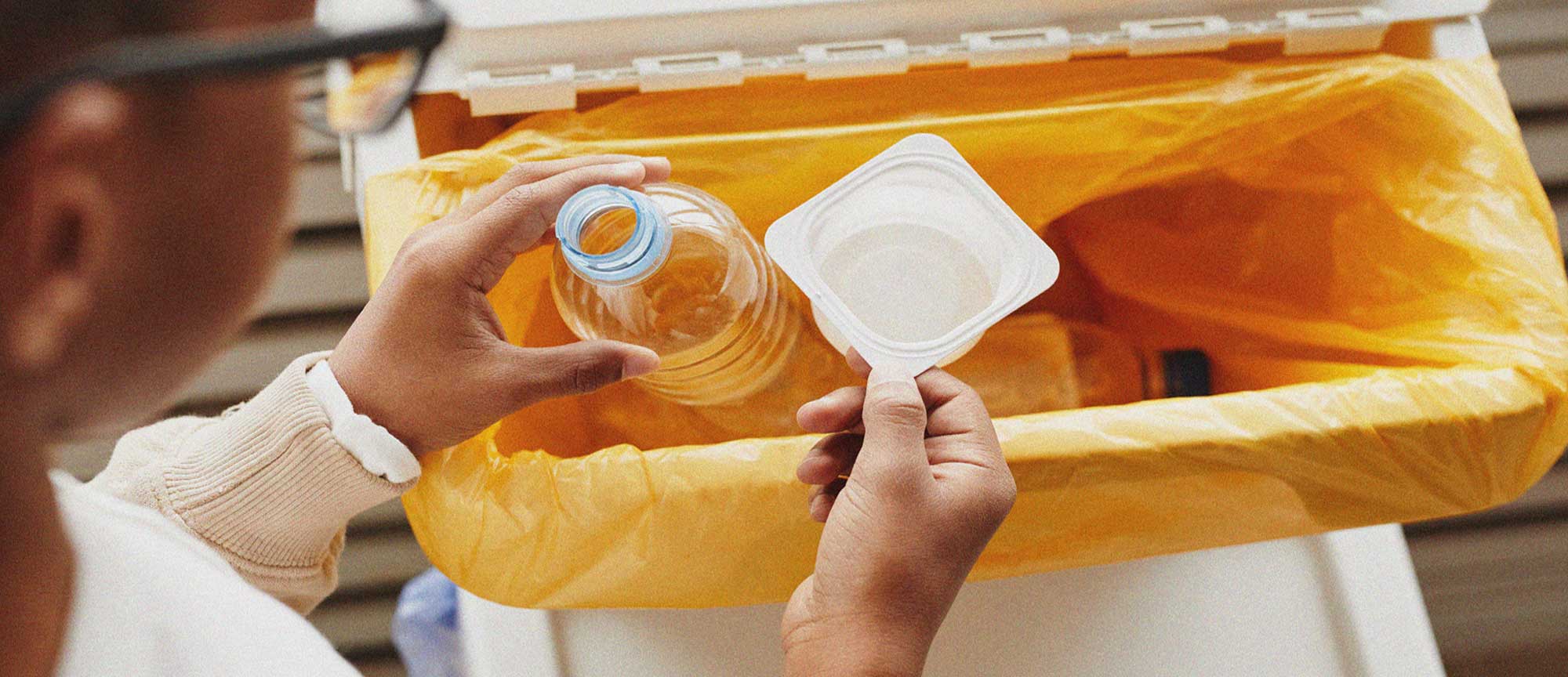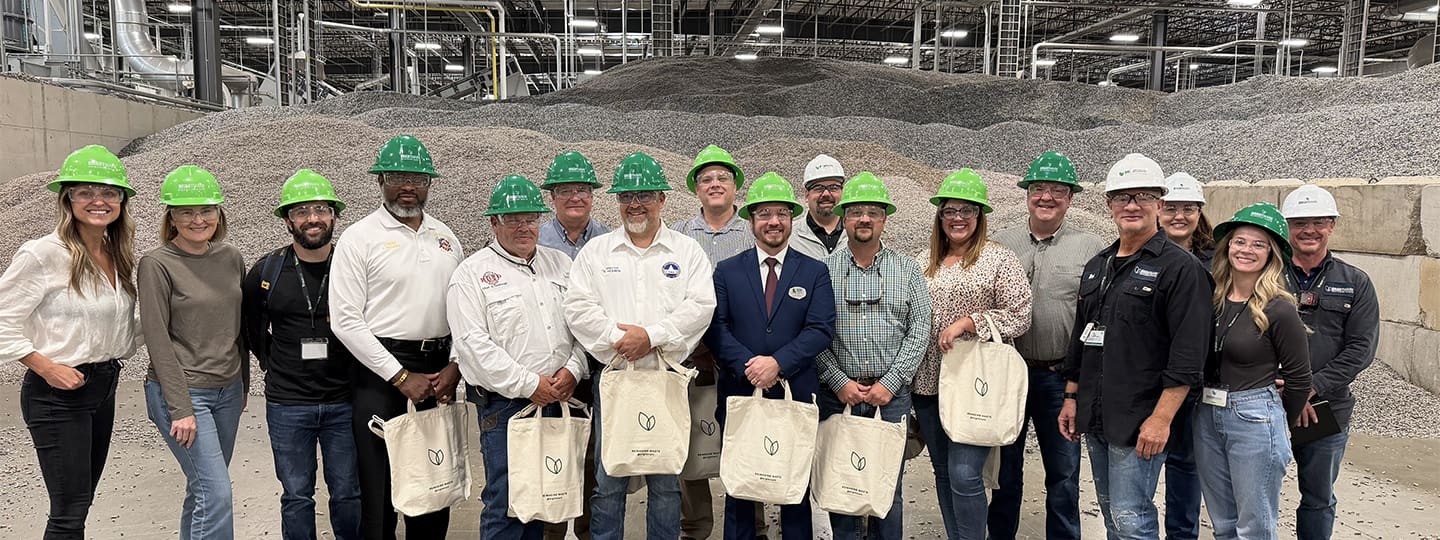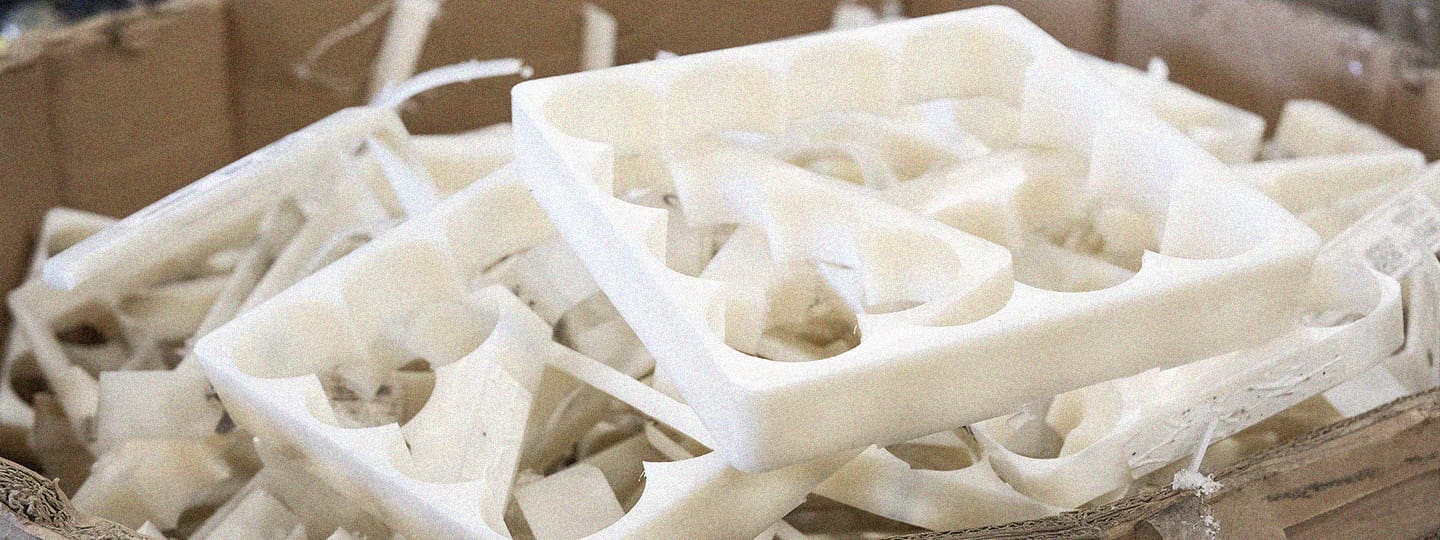Although humans have been recycling for a long time, the idea of recycling as beneficial to the environment is relatively new.
During the Great Depression, reuse ran rampant, as families reused biscuit containers as lunch boxes and the fabric from flour sacks to create clothing. It was partly born out of necessity, but it was recycling for all intents and purposes.
Later in the 20th century, the need for recycling changed as humans began producing insurmountable amounts of waste that ended up in nature, clogging waterways and making the world less beautiful. This build-up spurred the push in the late 70s to start addressing the need to recycle.
Only recently has humanity started to recognize the negative environmental impacts of a specific kind of waste produced by humans: plastic waste.
In fact, plastic waste is one of the reasons Brightmark’s vision is to create a world without waste. It is apparent how much plastic waste is generated, and Brightmark wants to be part of the solution to end plastic waste.
However, it takes everyone working together to eliminate plastic waste, so we believe it’s valuable to understand the benefits of recycling and why everyone should prioritize it.
Understanding Which Plastics Are Essential
Humans produce more than 380 million tons of it every year, with more than fifty percent of it being of the single-use variety. This means people interact with plastic products for a few minutes and then throw them in the garbage, potentially ending up in landfills, incinerators, or the environment. As more industries turn to plastic for essential industries like healthcare and the manufacturing of child safety products, more plastic waste is created. It’s critical to recognize which plastics are essential and which can be reduced or replaced with alternatives (like plastics that serve a single-use purpose).
Plastics’ Negative Impact on the Environment
Not-fun fact: Every year, over ten million tons of plastic are dumped into the ocean.
This is a problem because few solutions keep plastic waste from polluting the earth. However, recycling plastic is an option that exists and provides various benefits.
Benefits of Recycling Plastic Waste
Diverting Waste
Plastic bottles and plastic containers are everywhere. Thankfully, they can be recycled relatively easily, as all bottles and most containers are recyclable. In 2021, five billion pounds of plastic were recycled in North America—but there is still more plastic waste that needs to be addressed.
Boosts the Economy
When people incorporate more recycling into their daily activities, more people can find work in the recycling industry.
According to the Environmental Protection Agency (EPA), recycling activities in the United States are responsible for more than 681,000 jobs, with 200,000 of those jobs directly related to plastics recycling. This is the reason that if recycling practices are increased, it can add more jobs to the economy.
At Brightmark, we contribute to local economies and help divert plastic waste where we have built and placed our circularity centers. These centers allow us to process waste quickly and effectively while employing hundreds of people. Recycling lessens the amount of plastic waste that pollutes the environment and increases career aspirations for those who live and work in the areas surrounding our circularity centers.
Less Natural Resources Are Utilized
When new plastic is made from virgin resources, its production can require significant energy—potentially from natural gas and coal. The creation of new plastic involves the use of non-renewable resources, like crude oil, used to produce plastics. If you’ve been paying attention, the planet doesn’t benefit when more greenhouse gas emissions are released into the atmosphere due to energy consumption and/or when crude oil is extracted from the earth.
Brightmark’s Plastics Renewal® technology reduces the resources and energy needed to make new plastics by turning plastic waste into new, circular products. This provides a comprehensive solution to a common form of waste generated by people worldwide. Conserving energy and reducing dependency on natural resources go hand in hand with recycling plastic waste.
Anything humanity can do to eliminate the creation of new plastics from virgin resources is a boon to the environment, and part of that includes recycling plastic by utilizing circular innovations.
Avoidance of Additional Greenhouse Gas Emissions
Single-use plastics typically end up in landfills, which account for more than 15 percent of methane emissions. Furthermore, the refinement of these plastics emits an additional 200 metric tons of greenhouse gases into the atmosphere every year. Finding ways to reduce and recycle single-use plastics (as well as other plastic types) can help divert these emissions.
Remembering the Importance of Reduce, Reuse, and Recycle
Plastic waste will only disappear if people focus on the principles of reduction and reuse (as illustrated through the waste hierarchy) while also adopting nontraditional and innovative practices, like advanced recycling. There is a way out from the deluge of plastic waste, but it takes all of us at once to do our part and see a way through.





